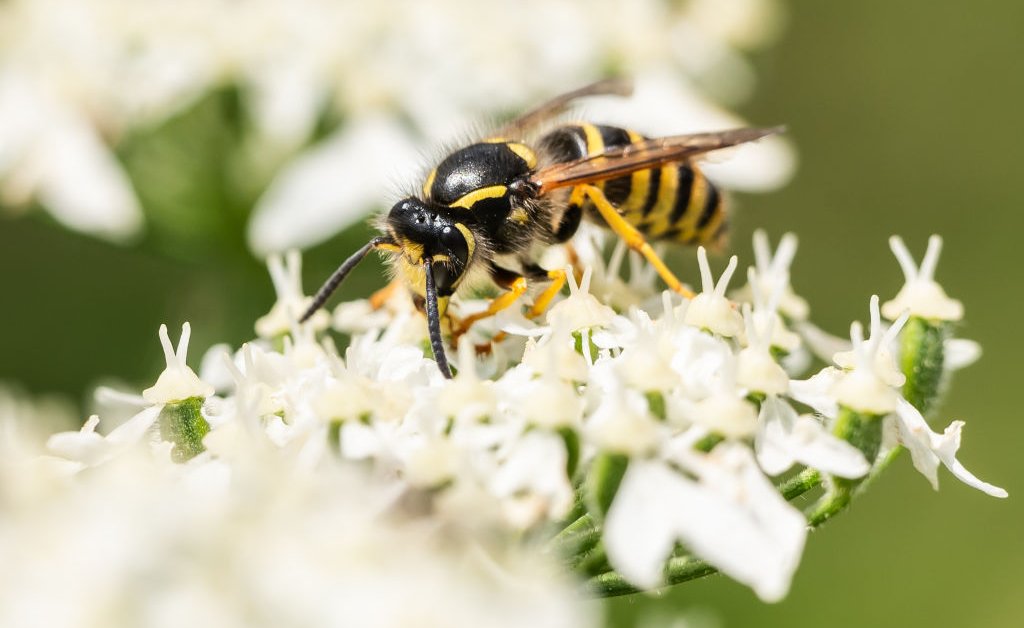The Effects Of A Changing Climate On Summertime Insects

Welcome to your ultimate source for breaking news, trending updates, and in-depth stories from around the world. Whether it's politics, technology, entertainment, sports, or lifestyle, we bring you real-time updates that keep you informed and ahead of the curve.
Our team works tirelessly to ensure you never miss a moment. From the latest developments in global events to the most talked-about topics on social media, our news platform is designed to deliver accurate and timely information, all in one place.
Stay in the know and join thousands of readers who trust us for reliable, up-to-date content. Explore our expertly curated articles and dive deeper into the stories that matter to you. Visit Best Website now and be part of the conversation. Don't miss out on the headlines that shape our world!
Table of Contents
The Buzz is Changing: How a Changing Climate Impacts Summertime Insects
Summer wouldn't be summer without the buzzing of bees, the chirping of crickets, and the fluttering of butterflies. But these iconic sounds and sights are under threat. A changing climate is significantly impacting summertime insect populations, with far-reaching consequences for ecosystems and human society. This isn't just about a few fewer butterflies in the garden; it's a complex issue with potentially devastating repercussions.
Shifting Seasons and Insect Life Cycles
One of the most significant impacts of climate change on insects is the alteration of seasonal timing. Many insects have evolved intricate life cycles finely tuned to specific temperature and rainfall patterns. Phenological mismatch, where the timing of an insect's life cycle (e.g., emergence from pupation, breeding season) no longer aligns with the availability of its food source or its host plant, is becoming increasingly common. Warmer springs are causing some species to emerge earlier, while others, whose food sources are tied to slower warming cycles, remain on their traditional schedule, leading to a critical disconnect.
Range Shifts and Habitat Loss
As temperatures rise, many insect species are shifting their geographical ranges towards higher altitudes or latitudes in search of suitable habitats. This can lead to competition with existing species and even displacement of native populations. Simultaneously, habitat loss due to deforestation, urbanization, and agricultural intensification exacerbates the problem. Insects, particularly those with specialized habitat requirements, are particularly vulnerable to these losses. The loss of crucial pollinators like bees could have a devastating impact on food production worldwide.
Increased Pest Pressure and Disease
Climate change isn't just affecting beneficial insects; it's also boosting populations of harmful pests and disease vectors. Warmer temperatures can accelerate the life cycles of agricultural pests, leading to increased crop damage and the need for more pesticides. Moreover, the spread of diseases carried by insects, like mosquitoes and ticks, is expanding into new regions, posing significant threats to human and animal health. This includes the increased risk of diseases like Lyme disease and West Nile virus.
The Ripple Effect: Ecosystem Disruptions
The decline of insect populations has far-reaching consequences for entire ecosystems. Insects are vital pollinators, contributing significantly to plant reproduction and biodiversity. Their role as a food source for birds, reptiles, amphibians, and mammals is also crucial for maintaining healthy food webs. A significant reduction in insect numbers can trigger a cascading effect, destabilizing entire ecosystems and threatening biodiversity.
What Can We Do?
Addressing the impact of climate change on summertime insects requires a multi-pronged approach. This includes:
- Reducing greenhouse gas emissions: This is paramount to mitigating the overall effects of climate change.
- Protecting and restoring habitats: Creating and maintaining diverse habitats is vital for insect survival.
- Promoting sustainable agricultural practices: Reducing pesticide use and adopting climate-smart agriculture can help protect beneficial insects.
- Supporting research and monitoring: Continued research is crucial to understanding the complex impacts of climate change on insect populations and developing effective conservation strategies.
The plight of summertime insects serves as a stark reminder of the interconnectedness of life on Earth and the urgent need for action to address climate change. Their survival is not just about preserving pretty butterflies; it's about safeguarding the very fabric of our ecosystems and the future of our planet. Let's work together to create a future where the buzzing of summer remains a vibrant symphony of life.

Thank you for visiting our website, your trusted source for the latest updates and in-depth coverage on The Effects Of A Changing Climate On Summertime Insects. We're committed to keeping you informed with timely and accurate information to meet your curiosity and needs.
If you have any questions, suggestions, or feedback, we'd love to hear from you. Your insights are valuable to us and help us improve to serve you better. Feel free to reach out through our contact page.
Don't forget to bookmark our website and check back regularly for the latest headlines and trending topics. See you next time, and thank you for being part of our growing community!
Featured Posts
-
 South Parks New Streaming Home What Episodes Might Get Pulled
May 23, 2025
South Parks New Streaming Home What Episodes Might Get Pulled
May 23, 2025 -
 South Park Fans Rush To Buy Box Sets Following Paramount Censorship Controversy
May 23, 2025
South Park Fans Rush To Buy Box Sets Following Paramount Censorship Controversy
May 23, 2025 -
 Improve Your I Phone Experience 6 Crucial I Os 18 5 Setup Tasks
May 23, 2025
Improve Your I Phone Experience 6 Crucial I Os 18 5 Setup Tasks
May 23, 2025 -
 Are Beloved South Park Episodes At Risk Due To Streaming Migration
May 23, 2025
Are Beloved South Park Episodes At Risk Due To Streaming Migration
May 23, 2025 -
 Analyzing The Time 100 List 2025s Most Impactful Philanthropic Leaders
May 23, 2025
Analyzing The Time 100 List 2025s Most Impactful Philanthropic Leaders
May 23, 2025
